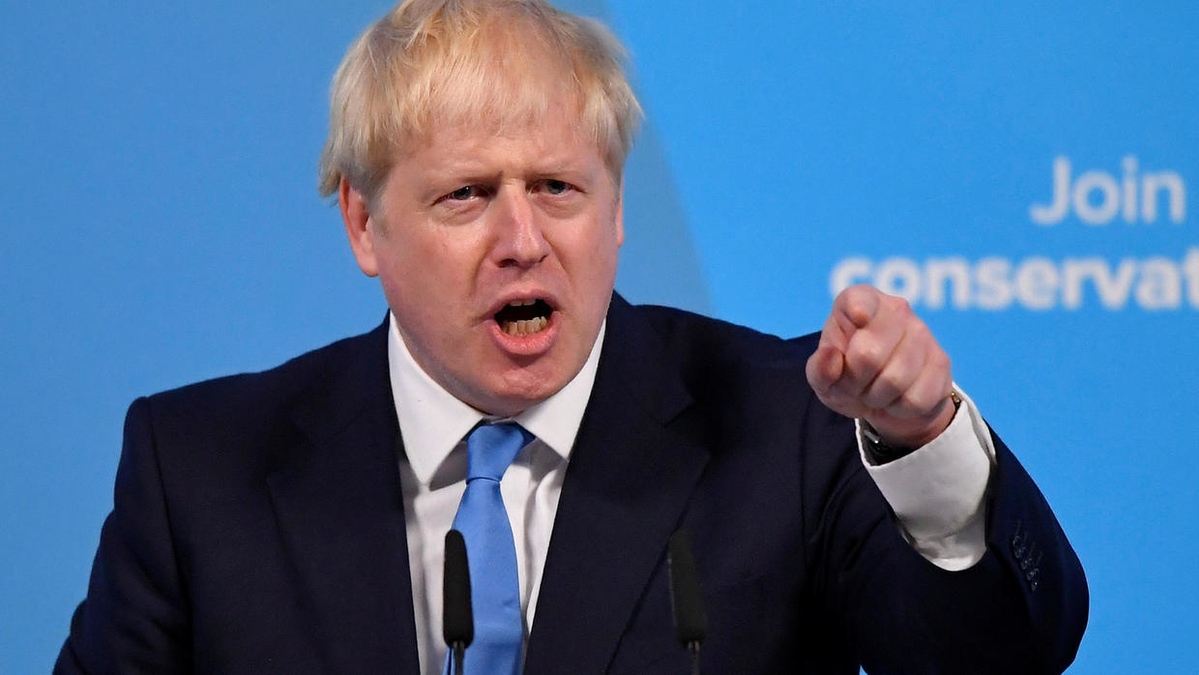Nail bars, spas reopen in UK
By Earle Gale in London | chinadaily.com.cn | Updated: 2020-07-14 01:56

Face masks could be mandatory for indoor shopping, says Boris Johnson
People living in England finally got the chance to pamper themselves with a post-lockdown makeover on Monday as the nation's beauty salons, nail bars, and spas reopened after four months in mothballs.
The reopenings were the latest step in a relaxation of the lockdown that began in March to restrict the spread of the novel coronavirus and the COVID-19 disease it causes. The newest easing was welcomed by the industry and the disheveled, with full appointment books at many establishments.
Business Secretary Alok Sharma said: "Enabling these often small, independent businesses to reopen is yet another step in our plan to kick-start the economy to support jobs and incomes across the country."
But many treatments involving the face — such as face-waxing, make-up application, eyelash treatments, and facials — remained banned because of their increased risk of spreading the virus, something that prompted some providers to lobby the government for a further relaxation of the rules.
Vanita Parti, the founder of Blink Brow Bar, a beauty chain with 11 outlets in London that specialized in eyebrow-shaping, told the BBC: "I'm furious … This will kill so many businesses. I wish they'd consulted us."
The issue threatened to escalate into one with an undercurrent of sexism when it emerged that men could have their beards trimmed under the new rules, but clarification from the British Beauty Council that beard could only be trimmed in the most simple of ways, and with those trims conducted from the customer's side, eased tensions.
Tattoo parlors and piercing shops also reopened in England on Monday, as did tanning salons, massage studios, and physical therapy practices.
Indoor shopping centers in Scotland reopened on Monday, as did pubs, bars, and restaurants in Wales, highlighting the different approaches taken by the nations that comprise the United Kingdom.
All enterprises will have to follow strict rules aimed at limiting the spread of the virus, a risk that was highlighted when at least 73 workers on a vegetable farm and packing business in the western English county of Herefordshire tested positive for novel coronavirus infections, triggering the authorities to order 200 workers at the AS Green & Co farm to self-isolate on the property.
The Guardian newspaper reported that the company specializes in growing broccoli, broad beans, and runner beans and supplies major supermarkets, including Aldi, Asda, Marks & Spencer, and Sainsbury's.
AS Green & Co said: "Our staff are our priority, they are hardworking key workers helping us provide food for the country during these unusual times."
It said it was working with Public Health England and officials from Herefordshire council "to prevent the spread of COVID-19".
Many of the farm's workers live in mobile homes on the property.
Katie Spence, health protection director for the Midlands region at Public Health England, said those who tested positive must self-isolate for seven days while others will isolate for 14 days.
She said those who tested positive were asymptomatic.
Karen Wright, director of public health for Herefordshire council, told the Guardian: "Prompt testing on the farm has allowed us to understand transmission and control the spread of infection."
Research conducted by the London School of Hygiene and Tropical Medicine has shown that food processing plants are prone to localized outbreaks because of their close living conditions and communal spaces.
The Financial Times, meanwhile, reports that businesses that organize trade shows and similar events fear 30,000 jobs could be lost if the 11-billion-pound ($13.8 billion) sector cannot get clarity about when conferences and trade shows can resume.
The Events Industry Alliance, the trade body that advocates for the sector, said around 70 percent of the 1,100 trade shows and exhibitions originally slated for this year have been postponed and tentatively rescheduled for the fall and winter.
Chris Skeith, chief executive of the Association of Events Organisers, told the FT: "Without a start date, the (180,000 businesses that attend trade shows) will have no orders to look forward to. The industry is devastated."
Trade shows and conferences are a particular challenge for the government because they bring people together at a time when the public is being advised to stay apart in order to slow the spread of the virus.
Prime Minister Boris Johnson, who decides how and when the lockdown will be eased, repeated recent comments about face coverings on Monday when he said people "should be wearing" them when inside shops. Johnson said new rules will likely be released in the coming days.
























